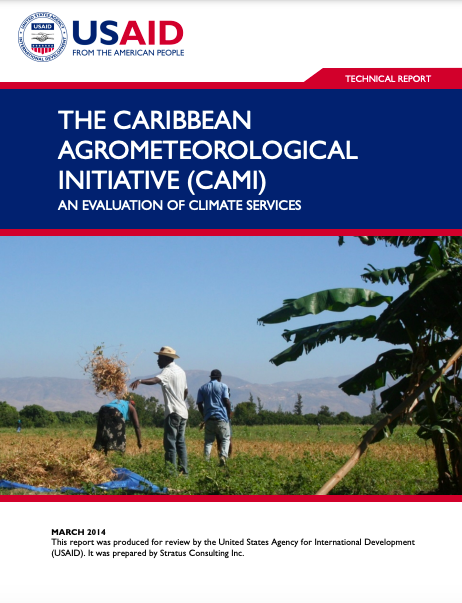USAID, 2014

The Caribbean Agrometeorological Initiative (CAMI) brought together the meteorological and agricultural agencies of 10 Caribbean nations to deliver climate services to farmers. This report evaluates the initiative.
CAMI’s aim was to increase farmers’ productivity in the Carribbean through better dissemination of weather and climate information. It functioned as a forum for regional climate dialogue and information sharing, and it built capacity within and among the partner countries.
The report found that the three-year time frame since the initiative’s onset was too short to assess how well it was meeting this aim. Consequently, the evaluation focused on four potential breakdowns that could and, in some cases, did prevent CAMI from achieving this objective.
It gives extensive background on climate impacts in the region and its chief crops and market constraints. It lays out the work that CAMI has done so far to improve climate services, such as workshops for meteorological and agricultural officers on modeling of rainfall, crops, pests and crop diseases. It also examined current distribution models and constraints, such as a lack of internet access for web bulletins.
Partner countries, it said, are on the way to achieving CAMI’s goal. With additional effort, each can further develop effective climate services capabilities.



